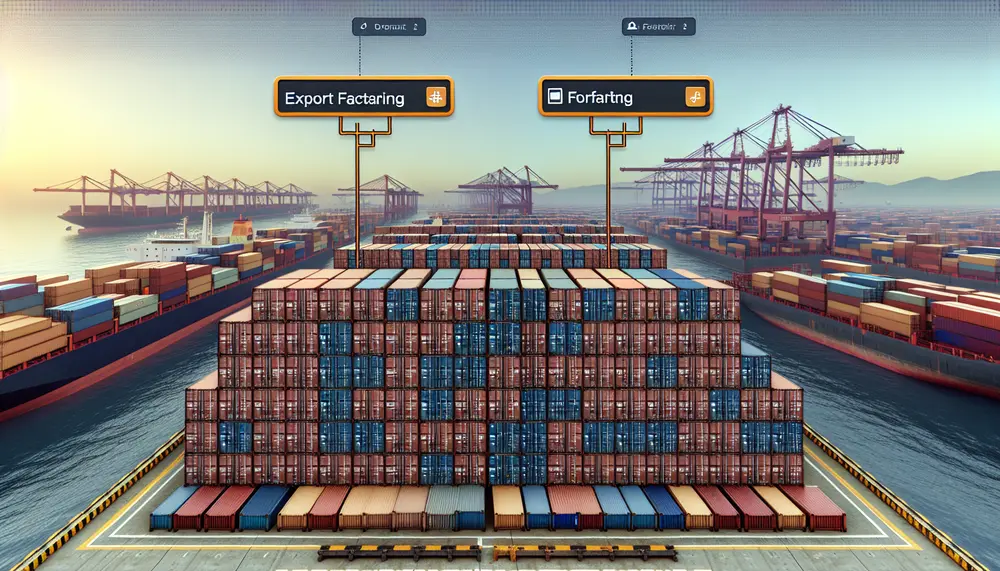Forfaiting
Forfaiting
What is Forfaiting?
Forfaiting is a financial transaction that involves the sale of an exporter's receivables to a forfaiter. These receivables are usually in the form of promissory notes or bills of exchange from international trade transactions. The forfaiter, who is typically a bank or a finance company, purchases these receivables at a discounted price, providing the exporter with immediate cash. Forfaiting enables exporters to eliminate risks related to payment delays and defaults from their overseas buyers.
The Forfaiting Process
The forfaiting process starts when an exporter sells goods to an overseas buyer and agrees to receive payment via a series of deferred payments. The exporter then approaches a forfaiter and offers to sell these future payment claims. The forfaiter evaluates the creditworthiness of the buyer and the political and economic stability of the buyer's country. If satisfied, the forfaiter agrees to buy the receivables at a discount, giving the exporter upfront cash minus fees and interest for the risk undertaken.
Benefits of Forfaiting
Forfaiting offers numerous benefits to exporters. It provides immediate liquidity, as funds are secured upfront. By transferring the credit risk to the forfaiter, exporters are safeguarded against potential non-payment by the buyer. Additionally, forfaiting is a non-recourse finance option; this means that the exporter is not liable to repay the forfaiter if the overseas buyer fails to pay.
Forfaiting vs. Factoring
It's important not to confuse forfaiting with factoring. Although both involve the sale of receivables, forfaiting is typically used for international trade and deals with larger and longer-term receivables. In contrast, factoring is often used for domestic transactions and involves shorter-term receivables. Another key difference is that factoring may be with recourse, meaning the seller might have to buy back unpaid receivables, while forfaiting is always without recourse.
Key Considerations in Forfaiting
When considering forfaiting, an exporter should take into account the discount rate, which can impact the overall profitability of the trade deal. It's also essential to recognize that not all types of receivables may be eligible for forfaiting, mostly it is reserved for high-value transactions with reliable counterparties.
Conclusion
Forfaiting is an effective financial solution for exporters seeking to mitigate payment risks and improve cash flow. By selling their medium to long-term receivables at a discount, exporters can focus on growing their business without the worry of payment collection and political risks associated with international trade.
Blog Posts with the term: Forfaiting

The article discusses how technological innovations, particularly digital platforms, AI, and blockchain, are transforming factoring and trade finance by enhancing efficiency, transparency, and accessibility. These advancements help businesses streamline operations, improve cash flow management, reduce costs, and gain a competitive...

Export factoring is a financial service where businesses sell their invoices to a factor for immediate capital, enhancing cash flow and transferring credit risk in international trade. Forfaiting involves selling longer-term receivables to a forfaiter who assumes all risks, turning...

Debt factoring allows businesses to improve cash flow by selling invoices at a discount to a third party, providing immediate funds but incurring costs that may affect profit margins. This financial tool is particularly beneficial for SMEs facing traditional financing...

Debt factoring allows businesses to sell their accounts receivable for immediate cash flow, helping manage financial obligations and growth but may impact profit margins and customer relationships....

Debt factoring allows businesses to improve cash flow by selling invoices to a third party, offering immediate funds and flexibility compared to traditional loans but may affect customer relationships and loan perceptions....

Debt factoring and forfaiting are financial tools that improve cash flow by selling receivables; factoring suits short-term domestic needs, while forfaiting is for medium to long-term international trade. Factoring involves a credit check of the seller and can affect profit...

Debt factoring is a financial strategy where businesses sell their outstanding invoices to a factoring company for immediate cash, improving liquidity and mitigating non-payment risks. This method benefits SMEs by providing quick access to funds without adding liabilities but may...

The article discusses how debt factoring has become a vital financial tool for businesses, providing examples of small businesses, medium-sized enterprises, and startups that have successfully used it to improve cash flow and support growth. It highlights industry-specific achievements in...

Factoring and forfaiting are trade finance mechanisms that provide companies with immediate cash by selling their receivables; factoring is typically used for short-term domestic or international invoices, while forfaiting involves longer-term export receivables. Both methods offer liquidity and manage credit...

Debt factoring provides businesses with immediate cash flow by selling outstanding invoices, reducing financial risks and administrative burdens while enhancing operational liquidity. It offers a flexible alternative to traditional financing but requires careful consideration of costs and potential challenges like...

Debt factoring is a financial tool that allows businesses to improve cash flow by selling invoices at a discount to a factoring company, providing immediate funds and outsourcing payment collection. While it offers benefits like improved liquidity and time savings,...
